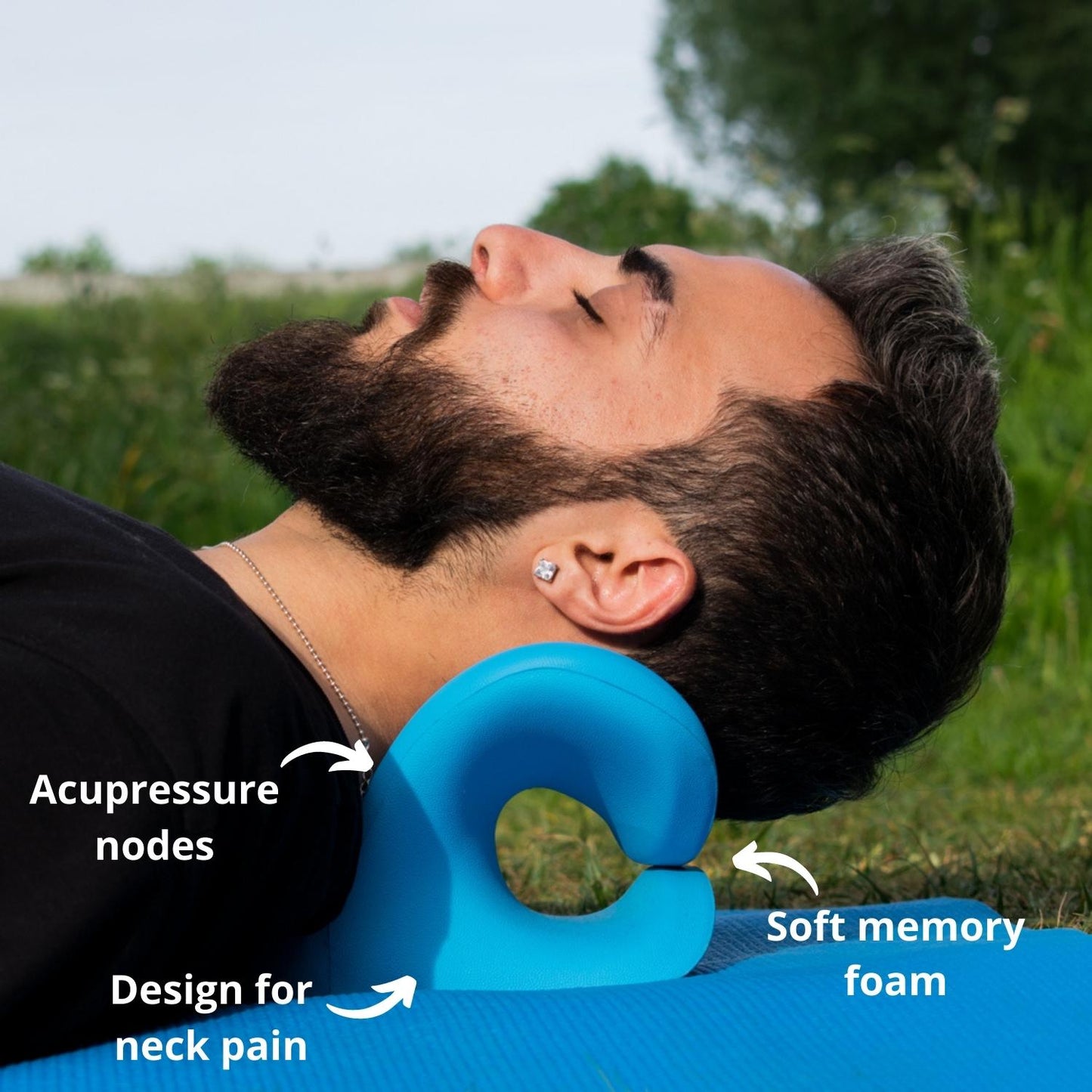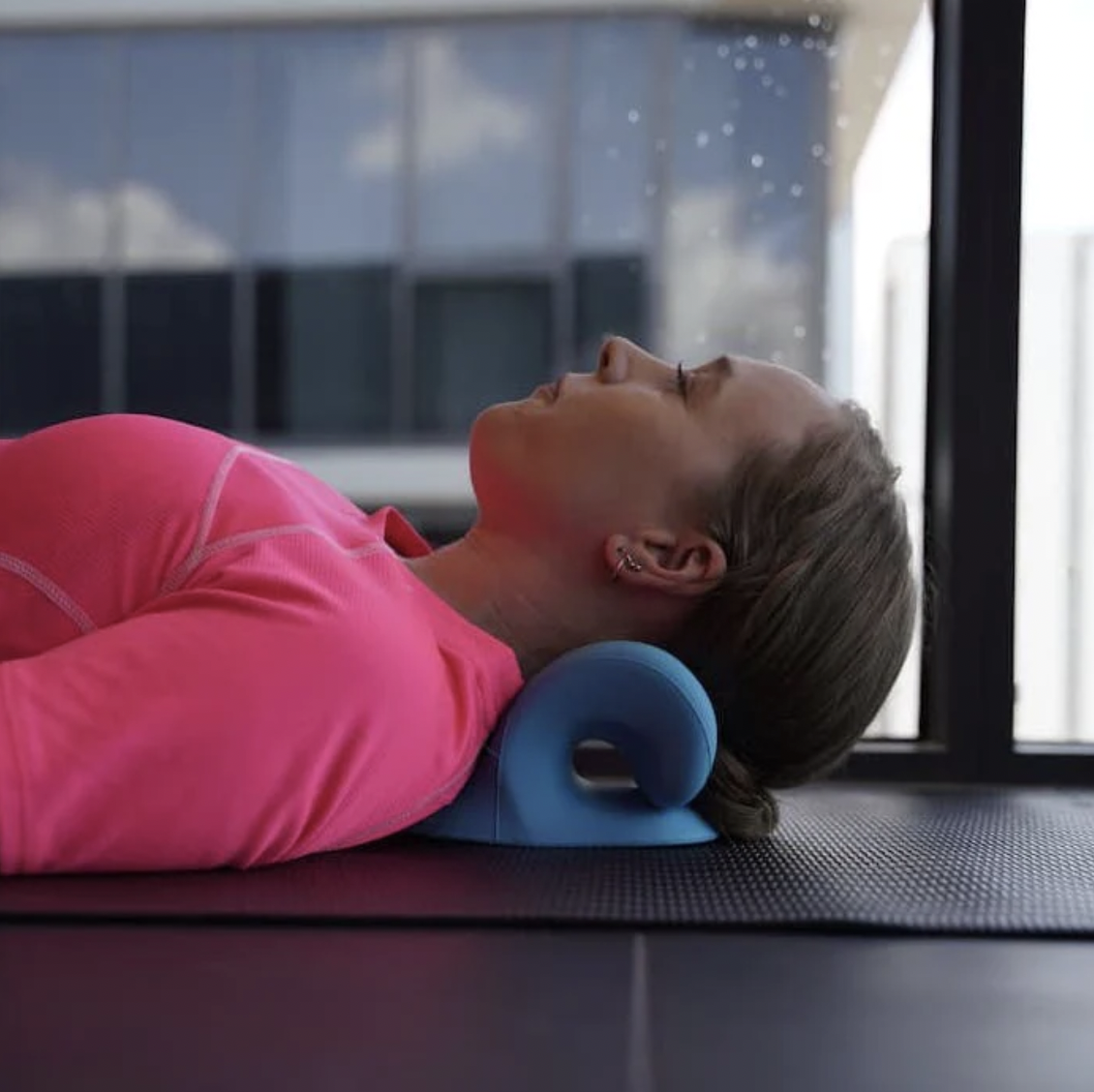Neck Cloud Evaluation: A Revolutionary Device for Neck and Spine Health And Wellness
Neck Cloud Evaluation: A Revolutionary Device for Neck and Spine Health And Wellness
Blog Article
The Effect of Stress And Anxiety on Neck Discomfort: Techniques for Lowering Tension and Pain
In today's hectic world, it's no key that stress has become a widespread aspect in the beginning and worsening of neck discomfort. Join us on a trip to decipher the impact of stress and anxiety on neck pain and uncover effective methods to alleviate pain and enhance overall top quality of life.
Understanding Stress-Related Neck Discomfort
Stress-related neck discomfort can show up as stress, rigidity, or discomfort in the neck and shoulder location. The connection in between stress and neck pain lies in the body's physiological reaction to stress, which can result in muscular tissue stress and tightness in the neck muscular tissues.

Identifying Common Stress Locations
Frequently experienced by people under stress, stress locations in the body can offer valuable insights right into the physical indications of mental stress. One usual tension location is the neck, where tension often manifests literally. Stress frustrations, rigid neck muscular tissues, and limited range of movement are usual symptoms of stress-related neck stress. The shoulders are an additional usual area where tension accumulates. Anxiety can cause the muscle mass in the shoulders to tighten, leading to pain and discomfort. Furthermore, the upper back is susceptible to tension accumulation, especially in individuals who experience chronic stress and anxiety. Poor posture and long term resting can intensify tension around. The jaw is also a common area for stress-related tension, as numerous individuals squeeze their jaw or grind their teeth when stressed. Being conscious of these common tension areas can assist people acknowledge the physical indicators of tension and take actions to resolve them before they intensify into chronic discomfort or discomfort.
Carrying Out Relaxation Strategies
To successfully handle stress-related tension in the body, carrying out leisure techniques is important. Leisure techniques are useful tools for lowering neck pain brought on by stress and anxiety. Deep breathing workouts can aid relax the mind and loosen up stressful muscles in the neck and shoulders (neck cloud). Exercising mindfulness reflection can additionally be useful in minimizing stress and advertising leisure. Dynamic muscle leisure, where you systematically strained and after that loosen up various muscle mass groups, can release built-up tension in the neck location. Furthermore, tasks like yoga and tai chi include both physical activity and leisure, making them efficient practices for minimizing anxiety and neck discomfort. Taking normal breaks throughout the day to stretch and unwind can stop muscle tightness and tension from gathering. By integrating these leisure methods into your everyday regimen, you can help handle stress levels, decrease stress in the neck, and relieve discomfort Continued linked with stress-induced neck pain.
Incorporating Self-Care Practices
Incorporating self-care methods is necessary for keeping general well-being and managing stress-related neck pain successfully. Participating in normal physical task, such as gentle stretching exercises or yoga exercise, can aid minimize stress in the neck and shoulders. Practicing excellent position throughout the day and taking frequent breaks from extended sitting or screen time can likewise avoid stress on the neck muscular tissues.
Moreover, prioritizing appropriate rest and developing a consistent sleep routine can add substantially to reducing tension degrees and promoting relaxation. Producing a relaxing bedtime regimen, such as checking out a book or taking a cozy bath, can help prepare the mind and body for relaxed sleep. Furthermore, preserving a balanced diet plan rich in nutrients and staying moistened can sustain overall health and minimize swelling that may worsen neck discomfort.
Incorporating mindfulness methods, such as deep breathing workouts or reflection, can help manage anxiety and promote relaxation. Taking time for oneself, taking part in pastimes, and establishing limits to secure personal time are additionally vital aspects of self-care that can add to minimizing stress and minimizing neck discomfort.
Seeking Expert Aid
How can people successfully attend to persistent neck discomfort that is affecting their everyday life and well-being? Seeking professional help can be a vital action in handling and reducing neck discomfort.
Chiropractics physician focus on back adjustment techniques to boost placement and minimize stress in the neck area. Physiotherapists provide targeted exercises and stretches to enhance muscles, improve adaptability, and improve overall neck function. Orthopedic professionals can give sophisticated clinical treatments such as shots or surgical options for serious instances of neck discomfort.
Final Thought

Stress-related neck pain can materialize as tension, rigidity, or discomfort in the neck and shoulder area. The connection between stress and anxiety and neck discomfort exists in the body's physiological feedback to stress, which can result in muscle stress and rigidity in the neck muscular tissues. Tension migraines, stiff neck muscle mass, and restricted array of activity are usual signs of stress-related neck stress. By incorporating these leisure techniques right into your daily regimen, you can assist take care of tension levels, reduce stress in the neck, and minimize pain linked with stress-induced neck discomfort.

Report this page